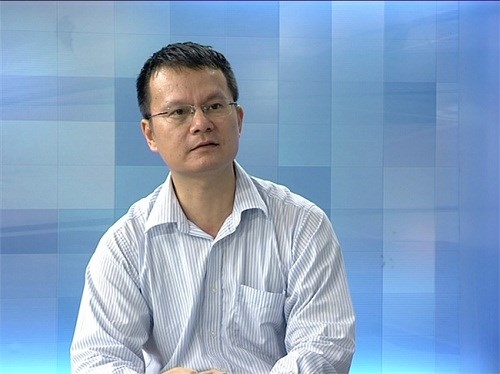.jfif) Opinion
Opinion

Trần Việt Thái, PhD from the Việt Nam Diplomatic Academy spoke to the newspaper Nông Thôn Ngày Nay (Countryside Today) about the situation in the East Sea following the Shangri-La Dialogue in Singapore last week.
 |
Trần Việt Thái, PhD from the Việt Nam Diplomatic Academy spoke to the newspaper Nông Thôn Ngày Nay (Countryside Today) about the situation in the East Sea following the Shangri-La Dialogue in Singapore last week.
The 15th Shangri-La Dialogue: Asia Security Summit in Singapore ended on June 5th after a three day meeting. In your opinion, what were the most important points discussed at the dialogue?
The 15th Shangri-La Dialogue this year took place in a complicated context with more acute challenges arising from four main issues. They are the East Sea dispute; missile tests in North Korea; the fight against IS; and acute non-traditional challenges - on immigration and climate change.
How do you evaluate the discussion on the East Sea in the Shangri-La Dialogue?
The discussion on the East Sea this year took place at the time when China is stepping up its sea patrols in the area and constructing military bases on small islands. In addition, China has issued several declarations that it does not recognise the verdict to be handed down by the UN Arbitration Court on China’s dispute with the Philippines.
What I should mention here is that the Sino-US dispute around the East Sea issue this year was not as acute as at last year’s dialogue. In my opinion, China had adopted an active policy and prepared well for the event. Many delegates attending the dialogue were surprised at the modest and courteous attitude adopted by the Chinese delegation at the meeting, particularly Admiral Sun Jianguo, the deputy chief of the Joint Staff Department of China’s Central Military Commission and head of the Chinese delegation.
In your opinion, what was the most notable success achieved at the Shangri-La 15th?
In my opinion, the most notable success of the Shangri-La 15th was the consensus reached by all participants on important topics raised at the three day meeting.
In his address, Nguyễn Chí Vịnh, Colonel General and Deputy Minister of Defense who was the head of the Vietnamese delegation sent a very strong and clear message from Việt Nam concerning the East Sea issue. He laid stress on the importance that all nations should co-operate in settling any disputes and preventing conflicts that may arise in the East Sea.
Việt Nam’s message conformed to the norms of international law while China was trying to avoid talking about international law.
How do you respond to Washington’s message presented at the Shangri-La Dialogue?
In his address, US Secretary of Defense Ashton Carter said “China’s actions in the South China Sea are isolating it, at a time when the entire region is coming together and networking. Unfortunately, if these actions continue, China could end up erecting a Great Wall of self-isolation.
In his address, Secretary Carter twice repeated the “principled security network”, do you think the repetition is a reflection of Washington’s tough stand against China?
I don’t think that was the key message the US wants to convey to Beijing. The key purpose was to build a security network basing on common principles – that is collective security.
Carter called on all countries in the Asia-Pacific region to join efforts to build a security network based on the principles of bilateral and multi-lateral relationships.
In your opinion, how will Shangri - La 15th affect the situation in the East Sea?
I think the situation in the East Sea will be more complicated than it was before the Shangri- La Dialogue. Prior to this event, the G7 Conference also issued a statement on the East Sea. This is evidence that the East Sea issue has become a global issue. At Shangri-La 15th, France asked countries to conduct joint patrols and show their respect for the international court’s jurisdiction.
Also at Shangri-La 15, Defense Ministers from the USA, the UK, France, Canada and India called on China to respect international law and practice.
The East Sea is not only an issue of national and maritime safety but other issues relating to international law. That’s why it is time for ASEAN to seize the opportunity and take control of the situation._VNS




